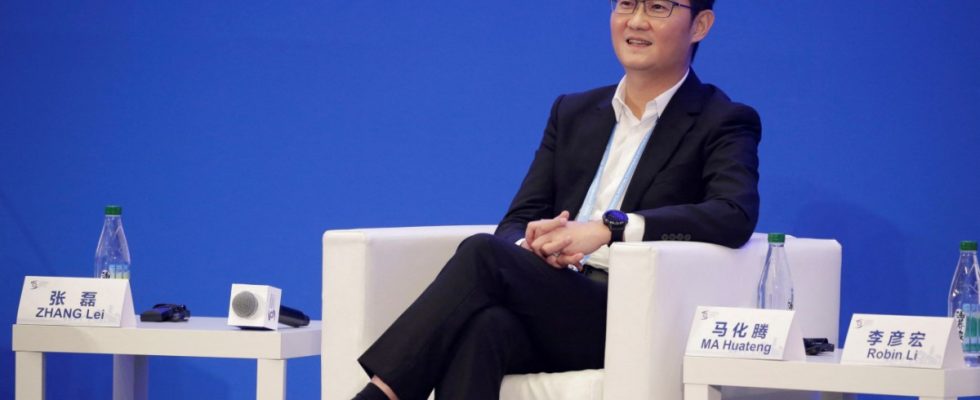The boss of the Chinese Internet company Tencent, Pony Ma, is not known for public appearances. His name contribution to the state medium CCTV is now attracting all the more attention. The 51-year-old billionaire writes that he is “extremely enthusiastic and deeply inspired” by the ideas of state and party leader Xi Jinping for the private sector. Among other things, Ma’s company operates the messenger service Wechat, which is omnipresent in China. He was particularly impressed by a new 31-point document from the government and party leadership. The rulers understood that the Internet companies play an important role in the country’s economic future and need support after the zero-Covid dry spell. At the same time, Ma reiterated that Tencent wants to further contribute to the achievement of the Communist Party’s economic policy goals.
Ma’s praise comes days after Tencent was again fined around €400 million for misconduct by its payment services division. Competitor Ant Group even had to pay almost one billion euros. Since the start of the regulatory campaign against China’s Internet platforms at the end of 2020, Tencent, Ant, Alibaba and other companies have been fined several billion euros, and their share prices have lost over 80 percent in value. But the campaign seems to be over now.
The 31-point plan released by the party and government on Wednesday promises to treat private companies the same as state-owned companies. The companies should be able to raise capital more easily and the state wants to support them in expanding abroad. They should also be consulted more closely before new laws are passed.
Analysts warn against exaggerated expectations
Many of the promised measures have also been demanded by German companies in China for decades. According to experts, behind the promises is the difficult economic situation in China, which is accompanied by high youth unemployment. But analysts warn against exaggerated expectations. The memories of Beijing’s most recent action against international companies are still too fresh, and the document is too vague.
Investor confidence has been shaken by a catastrophic 2022, in which lockdowns severed supply chains and stalled economic activity. This was followed by a comparatively weak recovery, with China’s gross domestic product growing by only 0.8 percent from the first to the second quarter of 2023. Official youth unemployment in the cities, on the other hand, rose to a new record of 21.3 percent in June – according to experts, the actual value could even be twice as high. Beijing needs private companies to reverse the trend.
Because while they represent over 60 percent of gross domestic product, they provide more than 80 percent of urban jobs. However, according to official data, investment by private companies fell 0.2 percent in the first half of the year, while that of state-owned companies increased by 8.1 percent. So there is economic pessimism among Chinese private companies. Especially since there is no guarantee that Beijing will give up its strategy of arresting, disappearing and expropriating undesirable figures from the private sector.
International corporations are also unsettled after the searches of several consulting firms and a new anti-espionage law. “While removing existing economic obstacles would benefit business confidence, concrete measures to boost consumer confidence and create a clearer legal framework would be even more important,” said Maximilian Butek, representative of the German Chamber of Commerce in Shanghai.
And the EU Chamber of Commerce in Beijing added: “European companies operating in China have become accustomed to blanket pro-business statements being made without any concrete action being taken.” They are all waiting for a new stimulus package from the government, after previous measures such as lowering the key interest rate have not yet had any effect.
Especially since the government’s 31-point plan makes it clear that the party’s primacy over the economy continues to apply. For example, it says that the establishment of the party apparatus in private companies should be further promoted. Against this background, the praise of other Chinese billionaires such as the Mercedes major shareholder Li Shufu seems very orchestrated.

